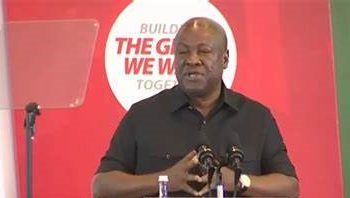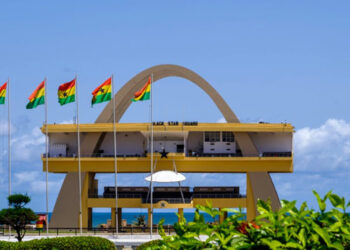In the realm of Ghanaian politics, recent developments have sent shockwaves throughout the nation. Alan Kyeremanten, a prominent and influential figure within the New Patriotic Party (NPP), has tendered his resignation, setting off a chain of events that will undoubtedly reshape the country’s political landscape.
Alan Kyeremanten has been a stalwart of the NPP, with a distinguished career marked by dedication and service to the party and the nation. His tenure has seen him hold key positions in government. However, his resignation was not his first, as he first resigned from the NPP in 2007 after he lost the NPP primaries. He attributed his resignation to unfair treatment by the leadership of the party among others but was politically coerced to return to the party in 2008.
The decision by Alan Kyeremanten to resign from the NPP has been met with surprise and speculation. His departure from the NPP he said was due to unfair treatment from the leadership of the party and also the hijacking of the party by some selected groups of party leaders and elders, and government appointees behind the curtain power brokers. At a press conference, Alan Kyeremanten cited several other concerns over the party’s direction and its ability to address the pressing issues facing the nation. This move, however, has set off a ripple effect within the political establishment.
The NPP is now faced with the challenging task of managing the fallout from Alan Kyeremanten’s resignation. This abrupt departure threatens to fracture the party’s unity and may lead to a significant realignment of power dynamics. The loss of Alan Kyeremanten, who commanded a substantial following, could potentially erode the party’s support base.
Meanwhile, some party stalwarts like Mr Kwamena Bartels described Alan’s decision as unwise and possibly the worst a politician could make.
Other NPP loyalists who were in the camp of Alan Kyeremanten have also rescinded their support following his resignation from the party.
The Ghanaian political landscape, already characterized by its fluidity and constant shifts, is now poised for further turbulence. The resignation of Alan Kyeremanten could trigger a realignment of political alliances, as supporters and sympathizers assess their loyalties. This moment could be pivotal for other parties and individuals looking to capitalize on the uncertainty within the NPP. Talks of a third force have always been on the tongues of every other eligible voter. Considering his new movement which seeks to rope in the youth, is Alan Kyeremanten the third force Ghanaians are looking for? Or will a new candidate emerge?
In the wake of Alan Kyeremanten’s resignation from the NPP, Ghana faces a critical juncture in its political history. The fallout from this event has the potential to reshape the political landscape, redefine party dynamics, and influence the trajectory of the nation. As Ghanaians grapple with these developments, they must remember that political stability and the ability to address critical issues should remain at the forefront of their elected leaders’ minds. The journey ahead may be uncertain, but it is a journey that Ghana must navigate with resilience, unity, and a commitment to its democratic values.
















